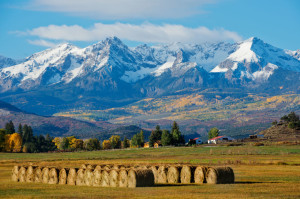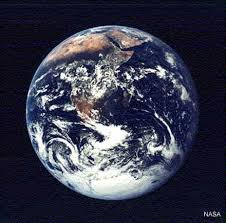A sermon preached by Christopher L. Webber at the Church of the Incarnation, San Francisco, on October 8, 2017.
Forty years ago my wife and I bought some land. It was, in the words of the prophet, “on a very fertile hill. (And I) dug it and cleared it of stones, and planted it with choice vines . . .” Well, actually, I planted it with apple trees and peach trees and corn and potatoes. But I tilled the soil and I pruned the trees and I established an asparagus bed, and I looked for it to produce good crops and by and large it did. I had a much better experience than Isaiah in the first reading – or, actually, God; it’s God speaking through the prophet about a bad experience God had with the people of God. But I had a good experience.
Eventually the time came to sell it and move on, to move west, and so we entrusted our land to new hands, a new owner, and unlike God’s experience with Israel, I have not been disappointed in the new owners either. I think he’s done better with it than I did. He sent me some apples once from my trees and some asparagus by overnight express. I’m very happy with what’s happened.
God has not been so lucky. God plants vineyards and it doesn’t work out very well.. We read about it in today’s first reading and it’s echoed in the Psalm and the Gospel. God planted a garden. God has been doing gardening from the beginning. And God has been disappointed again and again by the caretakers sent to take care of it, by the lack of a good harvest.
God also, come to think of it, planted a garden in North America. We sing about it and it always brings tears to my eyes:
O beautiful for spacious skies
For amber waves of grain
For purple mountain majesties
Above the fruited plain . . .
That’s what we’ve been given. That’s what was entrusted to us. And we were challenged to build a shining city on a hill, to draw others and inspire others.
We sing about it still: “O beautiful for spacious skies . . .” We sing about it, and we wake up in the morning to hear how many died in the latest killing spree and how badly we have failed to help those whose lives have been destroyed by a hurricane and we continue to pour carbon dioxide into the air and to warm the seas. And one plus one is still two. If you pollute the air and warm the seas, they will spawn ever fiercer storms and trees will be uprooted and farm land and gardens and homes will be washed away and human lives will be lost.
And yet we choose leaders who make false promises and are intent on their own power and wealth and have no notion, not the slightest notion, of a vision like that of Isaiah, like that of Jesus, leaders who have forgotten, as we have forgotten,
“the heroes proved in liberating strife,
Who more than self their country loved
And mercy more than life!
Why is there such an apparent shortage of leaders and followers
Who more than self their country love
And mercy – and mercy – more than life – more than life.
For the vineyard of the LORD of hosts is the house of Israel, and the people of Judah are his pleasant planting; he expected justice, but saw bloodshed; righteousness, but heard a cry!
The Hebrew has a little play on words there:
He looked for righteousness but heard a cry.
The King James says, “He looked for righteousness but behold oppression.”
In Hebrew it says:
Vayikáv lamishpát, v’hinéy mispách; litz’dakáh, v’hiney tza’akáh.
He looked for mishpat but behold mispach, for dakah but behold za-akah
or to make a similar play on words in English:
he looked for right but behold riot;
for equity, but behold, iniquity.
God looked for righteousness.
God had expectations.
America! America!
May God thy gold refine. . .
It’s so easy, isn’t it, to watch the news and despair. How can I make a difference? I can see what needs doing but the people in power are blind, blind, self-obsessed, willing to take actions that destroy our future, blind and deaf to the things that need to be done.
We ought to know what God hopes for in this western vineyard, this city on a hill, this America. We know we ought to create a health care system that works for everyone. We know we ought to rid the nation of guns, take action to reduce air and water pollution, teach tolerance and self-sacrifice. And doesn’t it seem hopeless?
It’s easy to say, “I’ve done what I could: I voted right; I give to environmental and justice causes and I pledge to the church. I try to have an influence on others but I don’t personally know anyone who has an influence in city hall or Sacramento or Washington., so there’s nothing I can do.”
I’m just one small voice, right? But the world is made up of small voices. There are more of us than there are of them. And if I truly care, I and millions of others can make a difference. Yes, we can.
Do you tithe? Do you contribute to justice causes and the environment? If not, it’s no wonder the world’s a mess.
I’m working on the biography of a man who had been reading about coral reefs and he said, “I must have had a coral insect for a millio-millio-grandfather, loving to work beneath the tide in a superstructure that someday when the laborer is long dead and forgotten, may rear itself above the waves and afford rest and habitation for the creatures of the Good, Good Father of all.”
I like that picture: building a coral reef, century after century, a durable, lasting beautiful structure, grain by grain, grain by grain.
God didn’t call the apostle Paul to convert the world; but just to preach the gospel and Paul probably spoke to hundreds, but those hundreds became thousands, and those thousands became millions. And the world has been changed.
O beautiful for patriot dream
That sees beyond the years
Thine alabaster cities gleam
Undimmed by human tears!
Have you seen those cities, alabaster cities undimmed by human tears? I haven’t. I don’t expect to. So shall we change the hymn?
O pretty nice for modest hopes
Where we would like to see
A city that’s not halfway bad
And not much misery.
It doesn’t sing, does it? It doesn’t grab me either. I stand with Isaiah. I want to know why we aren’t getting better crops and I want to be sure the weeds don’t grow where I can pull them up. Have you pledged a tithe to the church? That’s the standard the Episcopal Church formally adopted years ago. How can we make a difference without commitment. Have you contributed to the Sierra Club or an organization working for the environment? Do you make an annual contribution to a group working for social justice? There are things we can do. We can make a difference. or we can sit home and complain that nothing ever changes, that the vineyard still produces the same wild grapes.
O beautiful – potentially –
God grant us grace to be
A fruitful vine: justice and peace,
Fulfilling prophecy.
I’m trying to reach you regarding your book Dear Friends, but my emails are bouncing back when I try the info@clwebber.com address here on your page. Would you be willing to get in touch via my email, agehring@skyhorsepublishing.com?
I was back to your American Prayer Book yesterday, looking for prayers to use on veterans’ day. I continue to enjoy reading your work from time to time because it always feels like we have had a visit. I was surprised to find that you have moved to the “left coast”. But I got my email back from the address I had, and the one on your website doesn’t seem to work for me. I am happily ensconced in Alabama, in the 20th year of my retirement. Liz – only you called her that – passed away in 2006 after a very brief bout with cancer, “no surgery, no chemo, no radiation”, based in having watched her brother die of the same cancer. I am dealing with Parkinson’s disease, but with relatively good quality of life and lots of exercise. I likely have a good ways to go at 81. God bless you and all the Webbers.